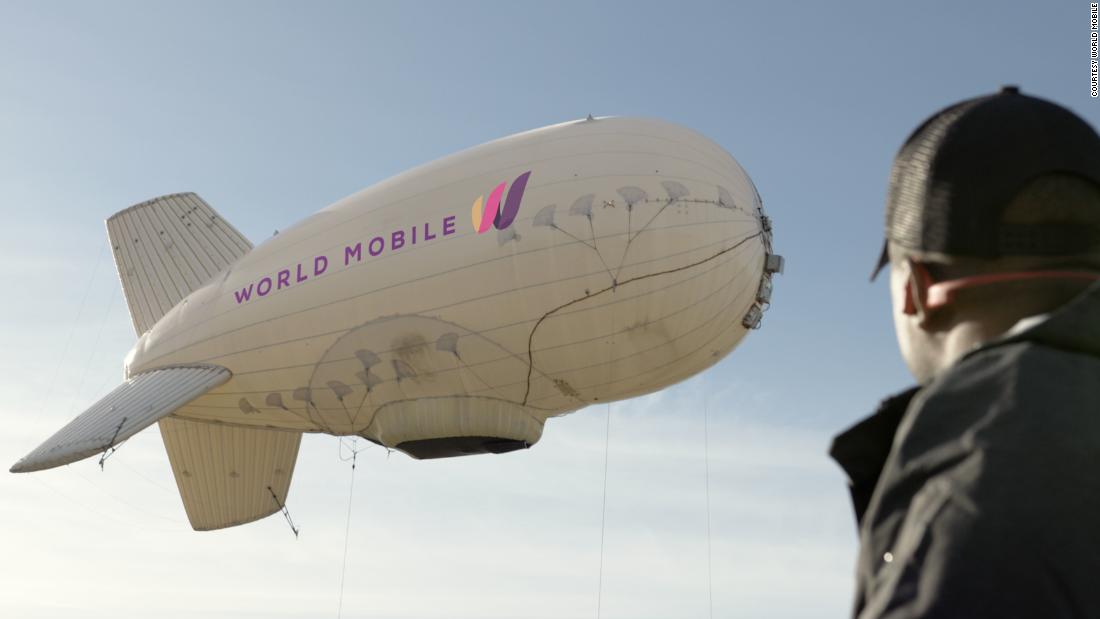Internet blimps are coming to Zanzibar. But can Earth Cellular succeed exactly where Google failed?

Table of Contents
United kingdom corporation World Cell is launching a hybrid network applying aerostats — blimp-like tethered balloons that it claims will give in close proximity to-blanket coverage throughout the islands.
Two photo voltaic-run, helium-filled balloons will float 300 meters (984 toes) previously mentioned land and have a broadcast range of all around 70 kilometers (44 miles) apiece, using 3G and 4G frequencies to provide their sign. The balloons can endure winds of up to 150 kilometers for each hour (93 miles for each hour) and stay airborne for up to 14 times right before descending for refilling. In the handful of hours of downtime, other aerostats will be airborne, guaranteeing consumers are in no way with no support, states the organization.
The sign from an aerostat — utilized as a reduced altitude platform station (LAPS) — is sufficient for duties like world-wide-web searching and email, suggests Earth Mobile. In the meantime, development is underway for a community of nodes on the ground, every single able to deliver WiFi for hundreds of individuals with speeds sufficient for movie streaming and gaming. The community comprising 125 places is scheduled for completion this 12 months and the first balloon will launch in June.
“Zanzibar signifies a actually appealing chance,” World Cellular CEO Micky Watkins tells CNN. “It is really roughly one particular and a half million folks on the islands. It is really like a tiny place.”
Where by many others have failed
Derek Extended, head of telecoms and cell at technology advisory company Cambridge Consultants, says Loon and Fb failed to triumph due to the fact they could not make the economics of their methods do the job, among other factors. Nevertheless, he states, “a hybrid model can be great-tuned to defeat this by supplying substantial-potential terrestrial solutions in extremely populated places and lower cost coverage alternatives with non-terrestrial platforms.”
Prolonged says that however the novelty of aerostats “may possibly in alone create some resistance to marketplace acceptance,” a hybrid land-air model, if “integrated seamlessly,” could be the “ideal remedy for the problem at hand.”
Earth Cell is also conducting experiments with HAPS technological know-how, but is not waiting on it prior to rolling out its aerostats and floor WiFi network. “It would be silly to expend 3 to 4 decades looking into (and) acquiring the whole community alternative without deploying what we know we can deploy now,” claims Watkins.
The benefit of connectivity
Sara Ballan, senior electronic development specialist at the World Lender, claims in Tanzania, connectivity has an economic influence at a private and nationwide amount.
“For a farmer, connectivity can open accessibility to climate information, industry rates and less difficult payment flows. For the economic climate, electronic transformation is a driver of advancement, innovation, occupation generation, and access to companies,” she clarifies. “Unlocking this possible is essential for modern society at significant, but specially for the expanding youth population trying to find jobs and opportunities.”
Ballan notes that connectivity is only part of the remedy: “We are optimistic that within a couple many years, (telecommunication) improvements will fill important connectivity gaps (in sub-Saharan Africa) … Affordability is, even so, even now a crucial situation, and progressive enterprise products will proceed to be necessary to join bad populations.”
The price of the community rollout in Zanzibar is numerous instances less costly than legacy infrastructure, Watkins claims, and Globe Cell aims to offer connectivity for 50 percent the price tag of existing operators.
Environment Cell lately lifted $40 million for the enhancement of application and initial deployment of its community, claims the CEO. The corporation owns the community and running license in Zanzibar but Watkins states he hopes associates of the public will inevitably be equipped to invest in up 70% of the WiFi nodes, operating and maintaining the network’s node infrastructure and earning profits from it.
It is really an strange organization design, says Long, in a marketplace classified by a modest quantity of big multinational functions.
“If Entire world Cell can realize success in these types of a industry, in which there are now several massive incumbents, then this bodes very well for the future,” Extended delivers.
In addition to Globe Mobile’s working licenses in Zanzibar and Tanzania, Watkins expects a license to follow in Kenya early this yr, adding the organization has earmarked a different 18 international locations for its procedure. Coming into a important year for the organization, Watkins is bullish about World Mobile’s potential customers.
“We get the sharing economic system ideal in Zanzibar, we demonstrate that at scale in Kenya and Tanzania, and then the relaxation of the world is ours,” he says.






